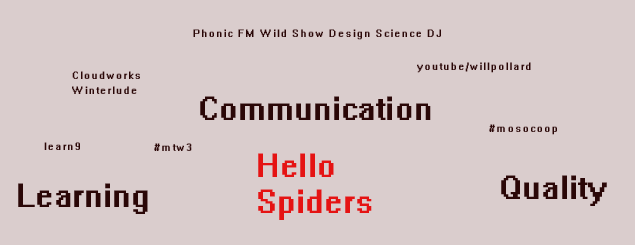Mode 2, design, science, publishing
More from reading the Guardian. This blog is not in real time but more or less same day at the moment.
Peter Scott writes about gold and green ways to finance academic journals. There seems no doubt it has to be very expensive so funded somehow. Towards the end he mentions Mode 2 and the book he contributed to - The New Production of Knowledge.
The main characteristics of Mode 2 knowledge are that it is highly reflexive, socially embedded, embodied in practice, problem-oriented and, crucially for the present discussion, "published" in countless forms.
At one level it is a banal idea. Anyone who has studied creativity or innovation recognises this form of knowledge. But our research policy frameworks have struggled to incorporate this idea, preferring the heroic model of science produced by great men (mostly male) and in great universities.
Recently I have come across "design science" as a way to describe application. See previous post for links back to the British Journal of Management.
Some of this relates to the post about postgraduate study. Somehow the language changes when mode one might be in sight. I find that journals are hard to understand even when they can be found. I find this even with social media and art curation. Although the mooc seems to be easily dismissed there is still a lot of theory about the web. Maybe more later, I am not going to be more specific without some checking. Except for a couple of examples.
Next week I will be in Lancaster and hope to visit the campus. A couple of years ago there was a Recipe Exchange in Exeter , I think connected to theory at Highwire in Lancaster. Also digital literacy is studied somewhere near the Institute for Advanced Studies. This is where I get a bit lost as to what digital literacy is supposed to be. Except for the postcards. There is often a stack of freebies contributing to study of the Edwardian postcard as precursor for the tweet. So I may learn more online but will at least find out a bit about the current scene.
Then maybe more about Exeter campus when I get back. It may seem strange not to move about Exeter more directly but this is how it seems to work.
Both Exeter and Lancaster will contribute to Futurelearn. Not sure how this will work out but see previous posts. This blog is repeating but may get coherent. Something about the mooc is the overlap with public space and practice.
